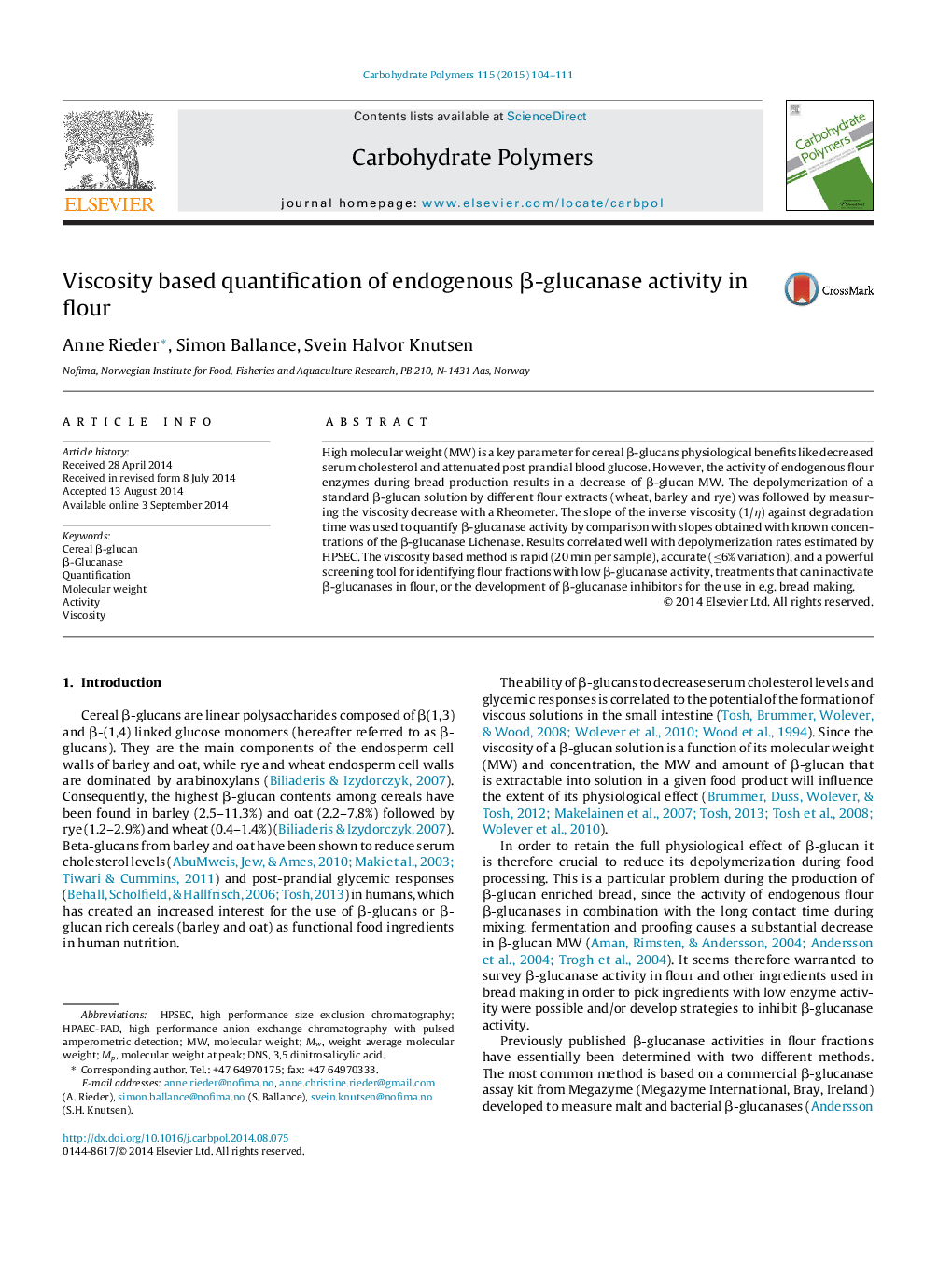| Article ID | Journal | Published Year | Pages | File Type |
|---|---|---|---|---|
| 7790139 | Carbohydrate Polymers | 2015 | 8 Pages |
Abstract
High molecular weight (MW) is a key parameter for cereal β-glucans physiological benefits like decreased serum cholesterol and attenuated post prandial blood glucose. However, the activity of endogenous flour enzymes during bread production results in a decrease of β-glucan MW. The depolymerization of a standard β-glucan solution by different flour extracts (wheat, barley and rye) was followed by measuring the viscosity decrease with a Rheometer. The slope of the inverse viscosity (1/η) against degradation time was used to quantify β-glucanase activity by comparison with slopes obtained with known concentrations of the β-glucanase Lichenase. Results correlated well with depolymerization rates estimated by HPSEC. The viscosity based method is rapid (20 min per sample), accurate (â¤6% variation), and a powerful screening tool for identifying flour fractions with low β-glucanase activity, treatments that can inactivate β-glucanases in flour, or the development of β-glucanase inhibitors for the use in e.g. bread making.
Keywords
Related Topics
Physical Sciences and Engineering
Chemistry
Organic Chemistry
Authors
Anne Rieder, Simon Ballance, Svein Halvor Knutsen,
